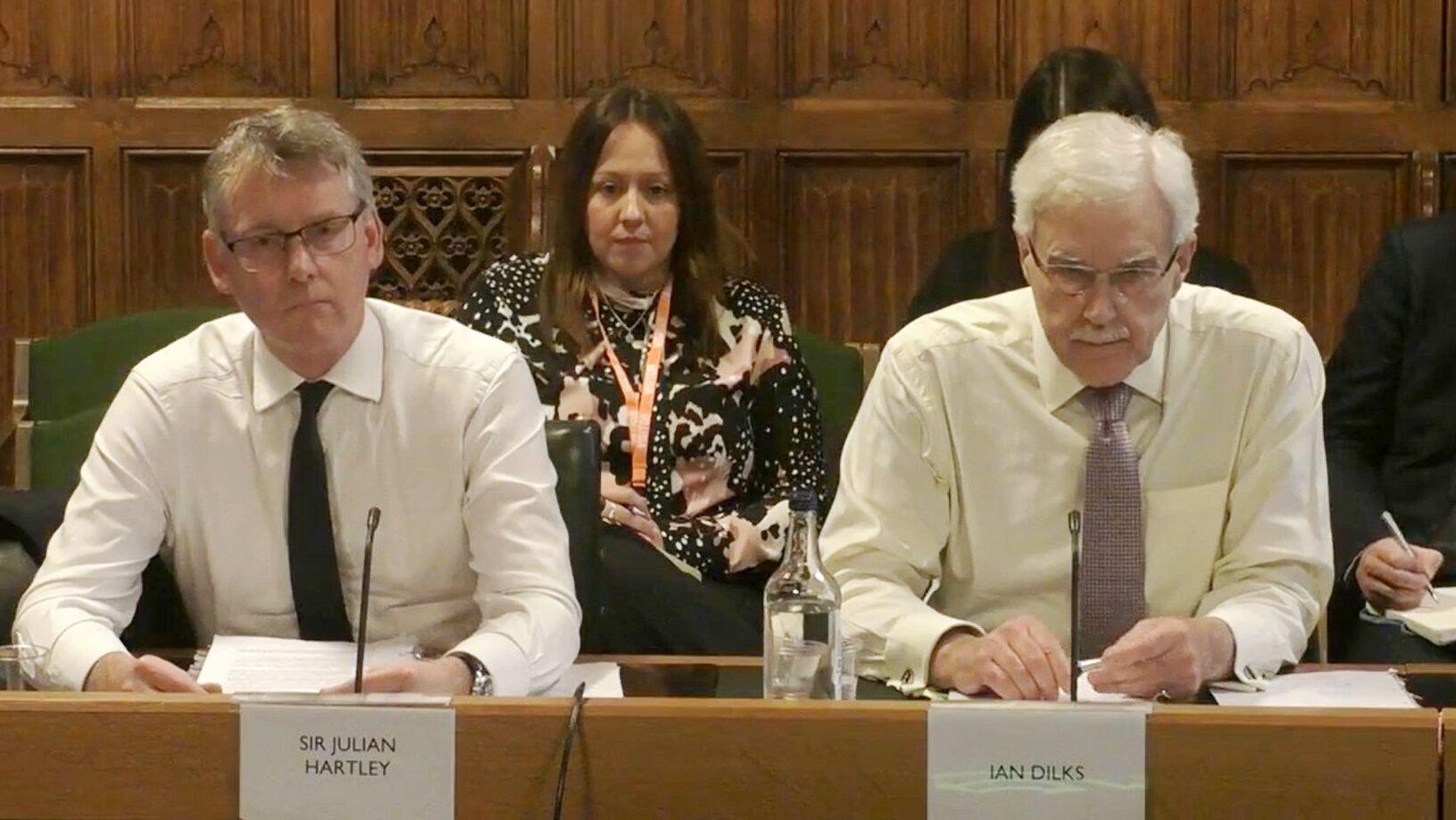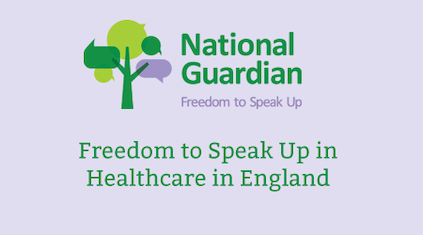An ear to the ground: how to work with guardians
Freedom to Speak Up guardians can help boards and line managers find out what’s really going on in their organisations, and act as a safety valve for staff grievances and complaints. Alison Moore finds out more.

The relationship between Freedom to Speak Up guardians and managers is always going to be a nuanced one. Managers and their representatives, including MiP, have generally welcomed the guardians. As a way for staff – or managers themselves – to raise concerns without going through the normal organisational hierarchy, guardians can help to develop a healthy workplace culture where people feel empowered to raise serious issues. But, of course, managers also know that their own departments may come under uncomfortable scrutiny if staff contact the guardian.
So how can managers work productively with guardians – and what are the benefits of doing so? MiP chair David Cain (pictured above) was the Freedom to Speak Up Guardian at Manchester University Hospitals Foundation Trust for two and a half years before stepping down at the end of March 2021. He says: “Managers need to help promote Freedom to Speak Up and to help celebrate the fact that staff who are worried about raising concerns have a confidential route to deal with them.”
A safety valve
As a former chief executive for 17 years, Cain says he was very aware that information about problems and behaviours sometimes does not get through to boards. “What you often get told is what people think you want to hear,” he says. “As a young chief executive, I got involved in the Healthcare Commission and it became clear to me there are issues in organisations that did not surface. The guardian is a safety valve.”
As a guardian, you have to deal with a wide variety of complaints, Cain says, and some people want to remain anonymous, leaving the guardian to take the issues forward without involving them.
“A lot of issues were just people not knowing where to turn with a concern,” he explains. “But people did speak out about the way they are treated or unfairness. And you do get people who are a little bit aggrieved about not getting promotion or whatever.” He saw evidence of a generational gap too, with younger staff having different expectations about what is acceptable in terms of behaviour and working hours.
Cain feels guardians need maturity and experience in dealing with issues – some of which may just turn out to be “personality clashes”, he says. “Generally, managers who are progressive see the value of Freedom to Speak Up guardians and the safety valve that it brings to the organisation,” he adds. “But occasionally, managers will be suspicious there is a hidden agenda or manipulation.”
He stressed that the guardian’s role needs to be accepted by boards as “value added” to the organisation, as a way to raise patient safety concerns and cut out bullying and other unwanted behaviours in the workplace, which can affect patient care. “Civility saves lives,” he says.
Encourage feedback and constructive challenge
Of course, managers can find themselves in an awkward position if staff raise concerns with the guardian which reflect on their leadership and behaviour. Cain feels there are characteristics which distinguish good and bad managers when dealing with staff concerns.
“Good managers are good listeners, make themselves available to staff and are there when the pressure is on ‘riding the storm’,” he says. “They accept feedback and encourage constructive challenge.
“Bullying is most evident in areas where managers don’t value staff as well,” he says. “Poor managers handle performance management from an aggressive standpoint and pick on staff to make an example of them. They close their minds to reality and focus on their own needs and not the team.”
MiP associate national officer Chris Nelson agrees that guardians play a valuable role but warns that organisations can react badly when uncomfortable issues are raised – often to their own detriment. “We need to give people a safe place in which to raise concerns,” he says.
Line managers are key

National guardian Dr Henrietta Hughes (pictured left) says managers, especially line managers, “play a vital role in fostering a speak up culture” and protecting the psychological safety of staff. “When people need to speak up, line managers are often the first person they turn to,” she explains. “How managers react has a tremendous impact on the perception of whether speaking up is welcomed.”
But she warns that many staff still see significant barriers to being able to speak up freely. “Sometimes we forget how scary we might appear, especially if someone needs to share something uncomfortable. Managers might be perceived as too senior or too busy, or send inadvertent signals, perhaps through tone of voice or body language, that speaking up isn’t welcome,” she explains.
Hughes points to the findings of a recent survey which found that Freedom to Speak Up guardians felt less valued by middle managers within the organisation than by senior leaders. “Where detriment is indicated as a result of speaking up, managers are also identified as a source of this treatment,” she says. “We want all managers to have the skills, training and support to listen up and have launched free training for managers with Health Education England. ‘Listen Up’ training identifies some of the barriers and provides practical tips on how to create a positive speaking up culture.
“Great managers recognise that some people may need an alternative route and encourage their teams to know about and speak to their Freedom to Speak Up guardian,” she added. “Guardians are impartial, support workers and ensure that action is taken as a result of someone speaking up – for the benefit of patients and workers.”
Who are Guardians and what do they do?
The role of Freedom to Speak Up guardians was established after the 2013 Francis Inquiry revealed serious problems in the corporate culture at Mid Staffordshire Foundation Trust and widespread fear among staff about raising concerns.
Guardians enable people to speak up when other routes are not available to them – any member of staff can raise anything which gets in the way of high-quality care or which affects their working lives.
Organisations appoint their own guardians and often have a network of Freedom to Speak Up champions as well. Champions are members of staff who offer initial help and advice to colleagues and help to promote a culture where speaking up is encouraged. Most champions work on a voluntary basis, and should be given time off by employers to carry out their duties, while some organisations even have elected champions.
Some trusts, including David Cain’s, also nominate a lead non-executive director to take responsibility for speaking up issues, and who work with guardians when necessary. Guardians are offered training through the National Guardian’s Office and most get protected time off for their duties. Cain says maintaining good relationships throughout the organisation is crucial to success as a guardian, together with remaining “polite and professional – and sometimes firm.”
In 2019-20, the 800 guardians dealt with more than 16,000 cases – but in the first half of 2020-21 cases increased by a third to 9,754. According to a national survey published in March 2021, 94% of guardians said they had direct access to their trust’s chief executive and 85% said they felt valued by senior managers.
Related News
-

Regulating the managers: more questions than answers
The Labour government’s plans for regulating NHS managers are still shrouded in mystery, and the three options on the table each have their pros and cons. Rhys McKenzie weighs up the choices and gauges the views of MiP members on the best way forward.
-

The inspector falls: why the CQC needs a fresh start
After years of chaos, the Care Quality Commission urgently needs to rebuild trust and credibility with the public and the services it regulates. What needs to change and what are the priorities for new boss Sir Julian Hartley? Alison Moore reports.
-

Voice, value and vision: what analysts need from the NHS
Data analysts play a vital role in an NHS which is increasingly data-driven and focused on public health trends. But the NHS faces fierce competition for skilled analysts and many feel the health service fails to value them or fully use their talents. Alison Moore reports.
